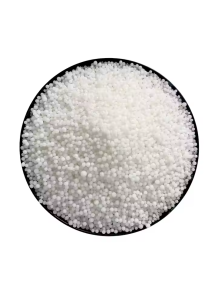Potassium is an essential mineral that plays several critical roles in the body, including regulating blood pressure, maintaining fluid and electrolyte balance, and supporting proper nerve and muscle function. While potassium carbonate (K₂CO₃) is more commonly recognized as an industrial and food additive (E501) rather than a direct nutritional supplement, its value largely stems from its ability to contribute potassium to the diet when used appropriately.
How Potassium Contributes to Health
-
Blood Pressure Regulation:
Adequate potassium intake is known to help relax blood vessel walls, which can reduce blood pressure. Several meta-analyses have demonstrated that increased dietary potassium is associated with lower blood pressure and reduced cardiovascular risk ().
-
Muscle and Nerve Function:
Potassium is crucial for muscle contraction and proper nerve signaling. By helping maintain electrolyte balance, potassium supports overall neuromuscular function and heart health.
-
Acid-Base Balance:
The alkaline nature of potassium carbonate means that, when used in very controlled amounts, it may assist in buffering dietary acids. However, the body tightly regulates pH levels, so the benefit here is secondary to its role as a potassium source.
Potassium Carbonate as a Dietary Source
While potassium carbonate can supply potassium, it’s not typically marketed as a nutritional supplement on its own. Instead, its benefits are generally linked to the overall potassium content rather than any unique properties of the carbonate form. In practice, most dietary recommendations and clinical studies focus on overall potassium intake from various sources—fruits, vegetables, and supplements like potassium chloride or citrate—rather than on potassium carbonate specifically.
A significant body of research on dietary potassium shows that higher potassium intakes are associated with lower risks of stroke and other cardiovascular events (). This supports the idea that ensuring sufficient potassium—by whatever safe means—is beneficial for cardiovascular and overall health.
Considerations and Safety
-
Moderation is Key:
While potassium is vital, excessive intake can lead to hyperkalemia (an abnormally high potassium level in the blood), which can be dangerous, particularly for individuals with kidney dysfunction.
-
Form and Bioavailability:
Most studies have focused on the benefits of potassium intake from common dietary sources and other supplement forms. If considering potassium supplementation, it’s best done under the guidance of a healthcare professional to ensure the chosen form and dosage are safe and effective.
Conclusion
In summary, the health benefits associated with potassium—such as blood pressure regulation, support for neuromuscular function, and maintenance of acid-base balance—are well supported by research. Potassium carbonate can serve as a source of this essential mineral, but it is the overall potassium content that is beneficial rather than any special property of the carbonate form. For anyone considering potassium supplementation or adjustments to their diet, consultation with a healthcare provider is recommended to tailor intake safely.
Research Citations
-
Aburto, N. J., Hanson, S., Gutierrez, H., Hooper, L., Elliott, P., & Cappuccio, F. P. (2013). Effect of increased potassium intake on cardiovascular risk factors and disease: systematic review and meta-analyses. BMJ, 346, f1378.
-
D’Elia, L., Barba, G., Cappuccio, F. P., & Strazzullo, P. (2011). Potassium intake, stroke, and cardiovascular disease: a meta-analysis of prospective studies. Journal of the American College of Cardiology, 57(10), 1033-1040.
